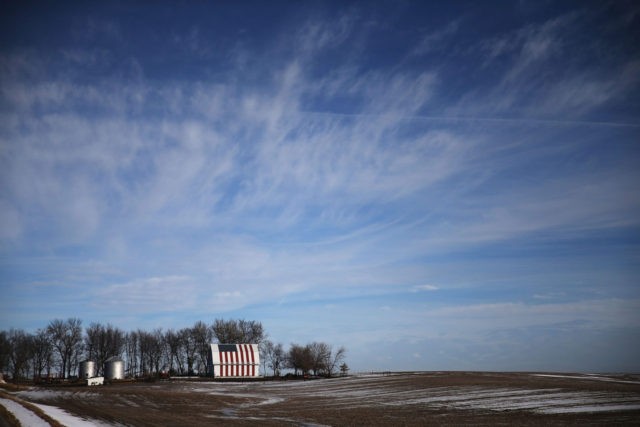So much for draining the D.C. swamp.
Right now, the Federal Communications Commission (FCC) is rewriting some rules that will screw over Trump-supporting rural voters’ access to some broadband services.
It is ironic that the urban supporters of Hillary Clinton are winning this fight for control of certain areas of access to broadband coverage, at the expense of rural Trump supporters, with the help of the federal government. I don’t think many rural voters are going to be happy with this development.
Back in 2015, the FCC adopted a rule that allowed something called “priority access licenses” (PALs) to be auctioned in 10-megahertz pieces. Sounds complicated, but the rule set up areas called “census tract auctions,” smaller areas that helped to protect underserved rural areas. The FCC also put out three-year licensing terms that were reasonable to stakeholders and did not lead to de facto permanent licensing. All of these ideas were considered reasonable for both the large corporate mobile carriers and the smaller rural Internet service providers (ISPs).
When President Trump was elected to office, Democratic FCC Chairman Tom Wheeler was replaced by Republican Ajit Pai. When this new regime took control of the FCC, the big mobile providers decided it was time to get the FCC to rewrite the rules to favor the more profitable urban areas over the rural areas. Yet, in this case, the Republican-appointed chairman is not pushing a Republican voter-backed idea.
The first idea Big Mobile pushed was much larger priority access area sizes that allow urban areas to be lumped in with rural areas. Massive license areas benefit the big corporate mobile carriers because all they really care about are the more profitable areas with a dense population. The existing rule is fair and has led to better access for rural consumers and providers, yet the fair rules are about to be tossed aside. If this new changed rule passes, expect rural consumers to be left behind.
If you think this sounds like crony capitalism, then you are right. This will lead to local providers being prevented from purchasing rights to rural areas that are not being provided services, because the large mobile providers will have bought up the large areas that contain more profitable urban areas and they will neglect the less profitable rural consumers. Smaller rural ISPs will be pushed aside and not provided access to help out rural consumers.
The same big corporate mobile carriers and large Internet service providers who want this change to the rules have been the recipient of millions in government handouts over the years for the purposes of deploying broadband to rural areas. They have not done a good job and taxpayer money has been wasted with a sparsely deployed rural broadband network. The Trump administration should not give yet another handout to same corporate interests that have already failed to deploy rural broadband coverage as promised.
Another terrible idea is to hand out de facto permanent licenses that will put up barriers to entry by new smaller companies and local innovators. A ten-year term is an eternity when it comes to broadband deployment. Long term licenses handed over to the big mobile providers will be a deterrent to innovation, new investment, and deployment in rural areas.
The giant national mobile carriers want the Trump administration to help them take over this spectrum to provide more service to the best profit-making areas – urban zones. The FCC seems to be complying with the demands of Big Mobile right now and changing the rules in the middle of the game.
Trump-supporting rural voters should make it known that they are not going to allow themselves to be screwed by swamp-dwelling lobbyists. This new rule should be scrapped.
This is an important time for rural voters to reach out to members of the FCC to alert them that they are not happy with the federal government picking winners and losers in a way that hurts rural consumers of broadband services.

COMMENTS
Please let us know if you're having issues with commenting.